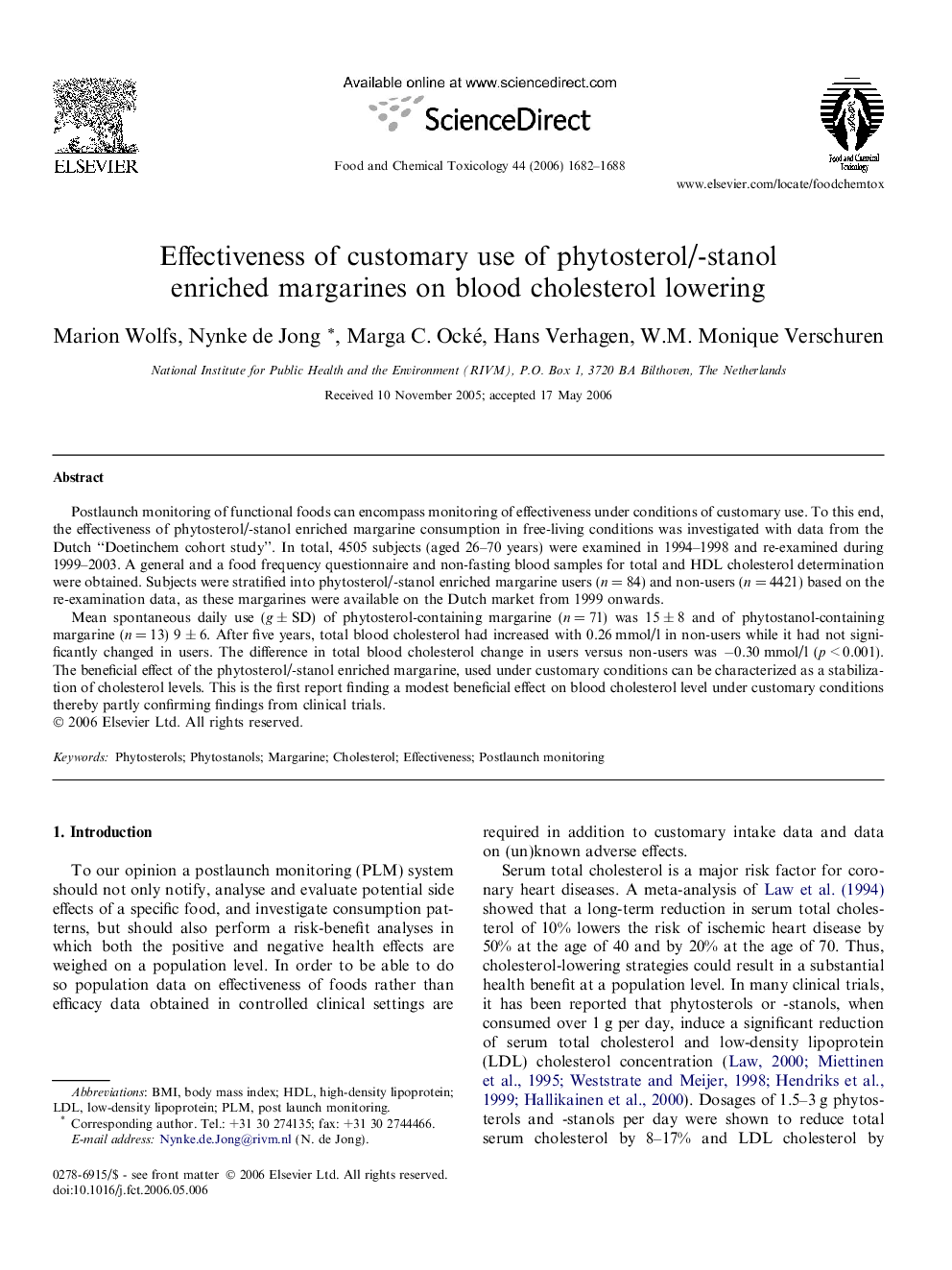| Article ID | Journal | Published Year | Pages | File Type |
|---|---|---|---|---|
| 2587873 | Food and Chemical Toxicology | 2006 | 7 Pages |
Postlaunch monitoring of functional foods can encompass monitoring of effectiveness under conditions of customary use. To this end, the effectiveness of phytosterol/-stanol enriched margarine consumption in free-living conditions was investigated with data from the Dutch “Doetinchem cohort study”. In total, 4505 subjects (aged 26–70 years) were examined in 1994–1998 and re-examined during 1999–2003. A general and a food frequency questionnaire and non-fasting blood samples for total and HDL cholesterol determination were obtained. Subjects were stratified into phytosterol/-stanol enriched margarine users (n = 84) and non-users (n = 4421) based on the re-examination data, as these margarines were available on the Dutch market from 1999 onwards.Mean spontaneous daily use (g ± SD) of phytosterol-containing margarine (n = 71) was 15 ± 8 and of phytostanol-containing margarine (n = 13) 9 ± 6. After five years, total blood cholesterol had increased with 0.26 mmol/l in non-users while it had not significantly changed in users. The difference in total blood cholesterol change in users versus non-users was −0.30 mmol/l (p < 0.001). The beneficial effect of the phytosterol/-stanol enriched margarine, used under customary conditions can be characterized as a stabilization of cholesterol levels. This is the first report finding a modest beneficial effect on blood cholesterol level under customary conditions thereby partly confirming findings from clinical trials.
